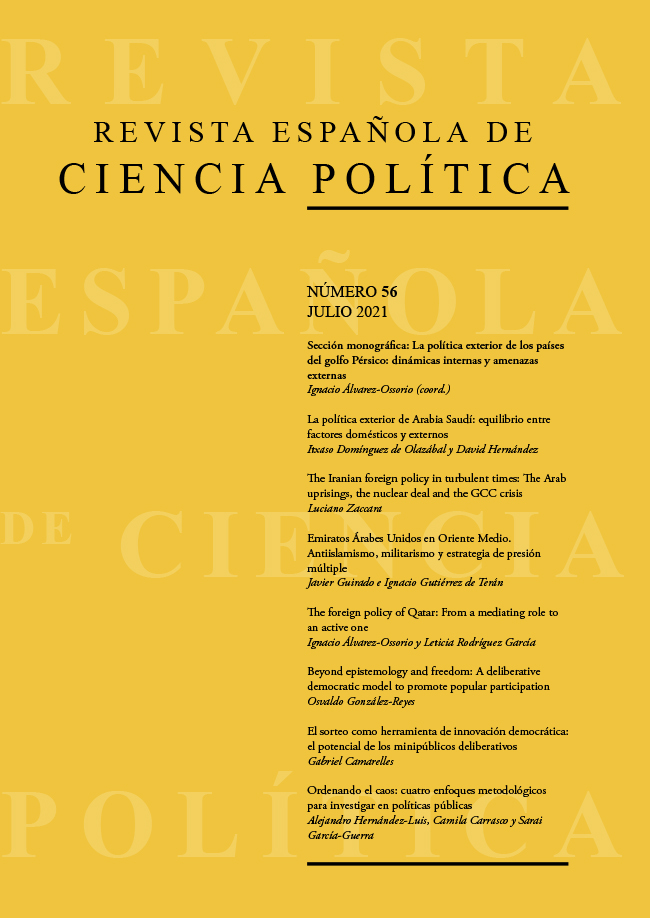Saudi Arabia’s foreign policy: Striking a balance between domestic and external factors
DOI:
https://doi.org/10.21308/recp.56.01Keywords:
Saudi Arabia, Middle East, Foreign Policy, Wahhabism, Arab Spring, Subaltern realism, Mohammed AyoobAbstract
TThis article explores the evolution of Saudi Arabia’s foreign policy, with a particular emphasis on the context following the 2011 anti-authoritarian uprisings. Drawing on the theoretical framework of subaltern realism, the study focuses on the close link between the country’s domestic situation and external constraints, predominantly in the context of the Gulf and the so-called Middle East, and the way it has commanded the crown’s articulation and implementation of the country’s foreign strategy. The kingdom’s ultimate objective, both yesterday and today, is to guarantee the House of Saud’s stability and legitimacy. The text pays special attention to the different dimensions of the so-called ‘Salman doctrine’ and the key role played by Crown Prince Mohammed bin Salman, currently Defense minister. It also reexamines the main issues on the Saudi regime’s national and regional agenda.
Downloads
Published
How to Cite
Issue
Section
License
Copyright (c) 2021 Itxaso Domínguez de Olazábal, David Hernández-Martínez

This work is licensed under a Creative Commons Attribution-NonCommercial-NoDerivatives 4.0 International License.






